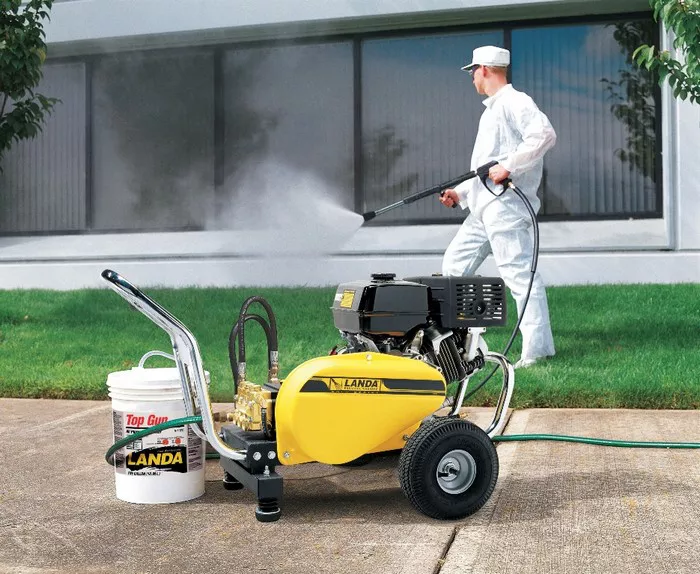Pressure washers are powerful cleaning machines designed to remove dirt, grime, mold, and other contaminants from various surfaces. They are popular for both residential and commercial cleaning tasks due to their efficiency and effectiveness. One common concern among users and potential buyers is the amount of water these machines consume. Understanding the water usage of pressure washers is essential for making informed decisions, whether for environmental considerations, cost-saving measures, or simply ensuring you have adequate water supply.
Water Consumption Rate
Pressure washers vary widely in their water consumption, typically using anywhere from 2 to 8 gallons of water per minute (GPM). To put this into perspective, let’s translate these figures into hourly usage. A pressure washer operating at 2 GPM uses 120 gallons of water per hour, while one operating at 8 GPM can consume up to 480 gallons per hour.
For comparison, a standard garden hose can use about 24 GPM, which means it can consume up to 1,440 gallons per hour. Thus, while pressure washers may seem like they use a lot of water, they are often more efficient than traditional methods when considering the speed and effectiveness of cleaning.
See also: The Right Hose for Your Pressure Washer: A Comprehensive Guide
Factors Affecting Water Usage
Pressure Washer Type
The type of pressure washer significantly impacts water consumption of pressure washer:
1. Residential Models (Electric): These are usually designed for lighter tasks and therefore have a lower GPM, typically ranging from 2 to 4 GPM. These models are suitable for tasks such as cleaning cars, patios, and outdoor furniture.
2. Gas-Powered Models: These are more powerful and can handle tougher cleaning jobs. They usually have a higher GPM, ranging from 4 to 8 GPM. These models are ideal for cleaning larger areas, such as driveways, decks, and siding.
3. Professional Models: Designed for heavy-duty cleaning, these pressure washers can have a GPM of 8 or more. They are used in commercial settings where large volumes of water are needed to clean construction sites, large vehicles, and industrial equipment.
Cleaning Task
The nature of the cleaning task also determines water usage:
1. Light Cleaning: Tasks such as washing a car or cleaning garden furniture require less pressure and lower water flow. A setting on the lower end of the GPM scale is usually sufficient.
2. Tougher Cleaning Jobs: Removing stubborn stains from driveways or cleaning mold from siding requires higher pressure and more water flow. These tasks necessitate a higher GPM setting to be effective.
User Technique
How you use a pressure washer also affects its water consumption:
1. Efficient Use of the Trigger: Only using the trigger when necessary and avoiding constant water flow when repositioning or adjusting the washer can significantly reduce water usage.
2. Nozzle Selection: Using the appropriate nozzle for the task ensures optimal water flow and pressure, preventing unnecessary water wastage. For instance, a narrower nozzle can provide higher pressure for tough stains, using water more effectively.
Water Conservation Tips
To make the most of your pressure washer while conserving water, consider the following tips:
1. Choose the Right Size Pressure Washer: Match the pressure washer’s GPM and PSI (pounds per square inch) to the specific cleaning task to avoid using more water than necessary.
2. Use the Lowest Effective GPM Setting: Adjust the settings to the lowest effective GPM for the task at hand. For instance, washing a car doesn’t require as much water flow as cleaning a driveway.
3. Take Breaks While Pressure Washing: Regularly taking breaks to reposition or assess your progress can help avoid unnecessary water flow.
4. Water Collection Systems: In areas where it is permissible, using a water collection system to capture and reuse runoff can be a sustainable option. This method not only conserves water but also prevents runoff from entering storm drains.
See also: A How-To Guide: Do Pressure Washers Heat the Water?
Conclusion
Pressure washers can be incredibly water-efficient cleaning tools when used correctly. By choosing the right model for your needs, using proper techniques, and considering water conservation methods, you can achieve effective cleaning while minimizing water usage. Understanding the factors that influence water consumption and implementing best practices can help you make the most out of your pressure washer, ensuring a balance between powerful cleaning performance and responsible water use.

